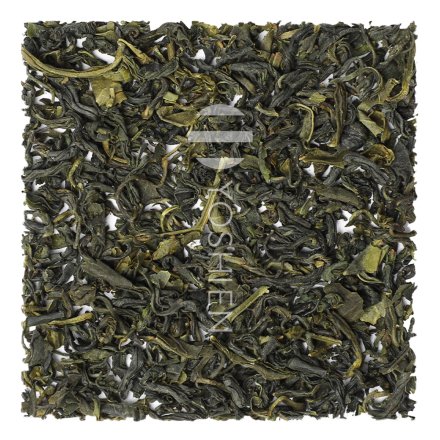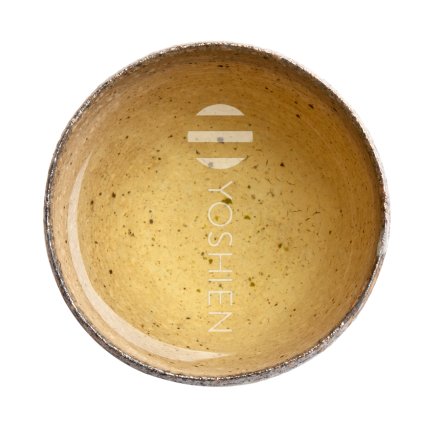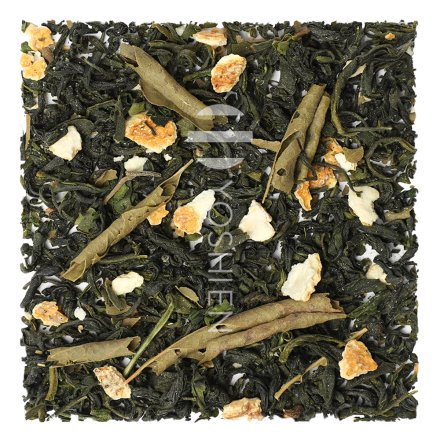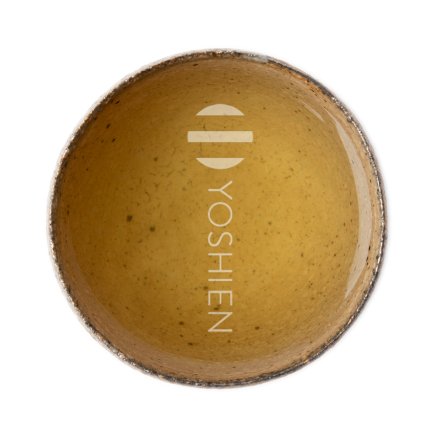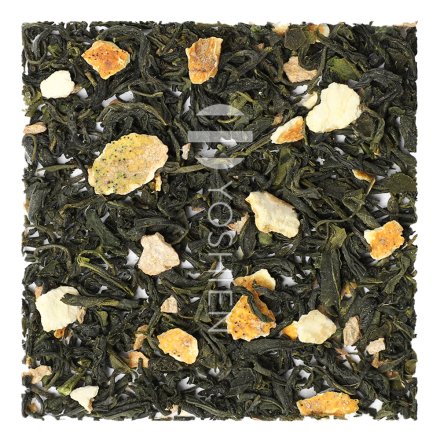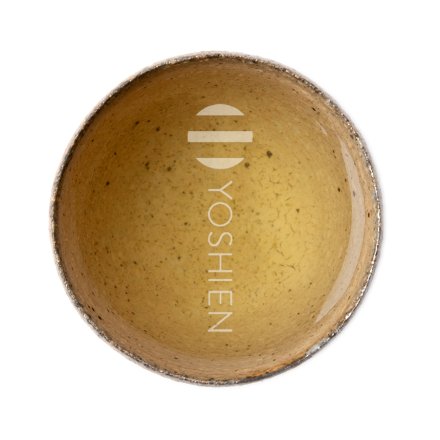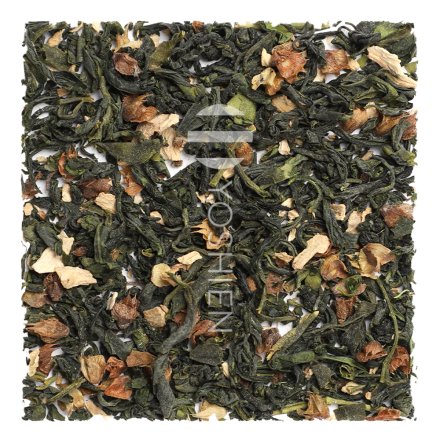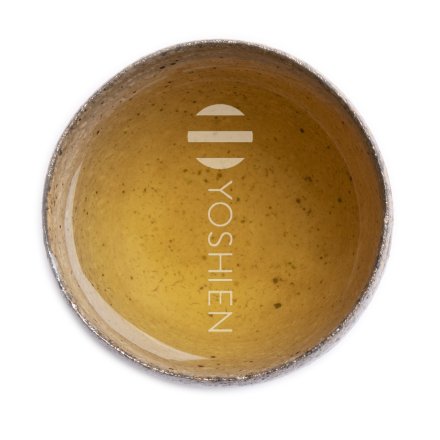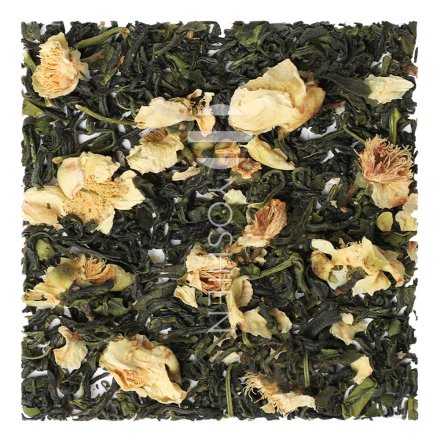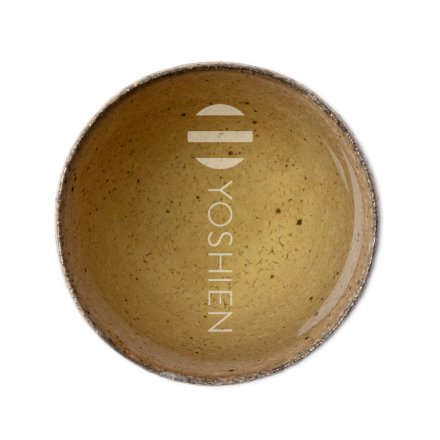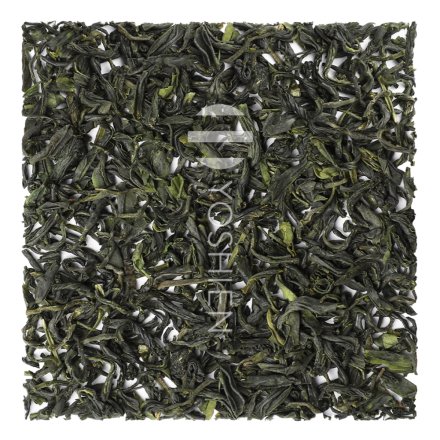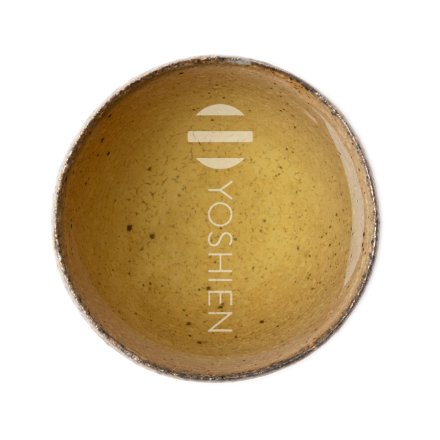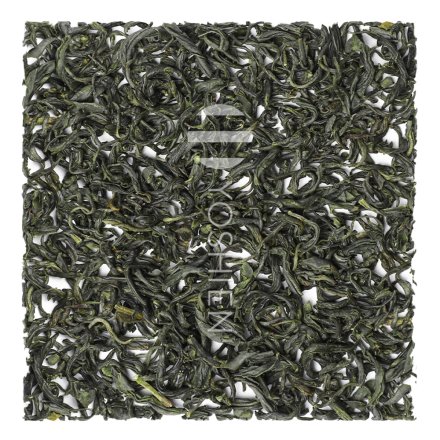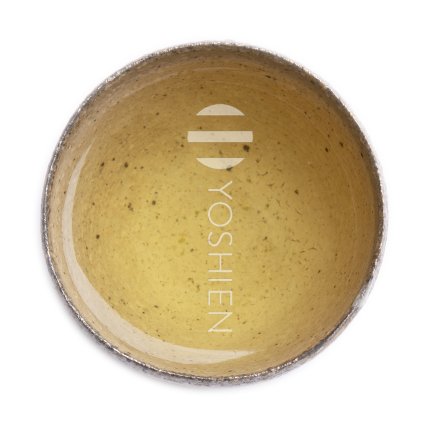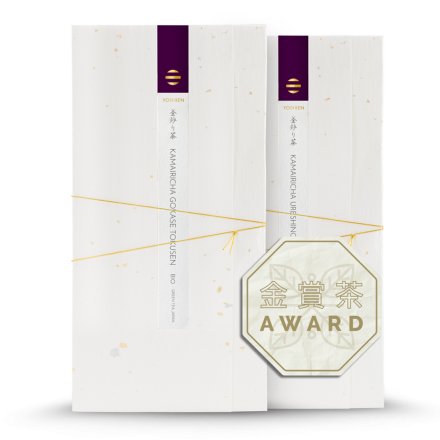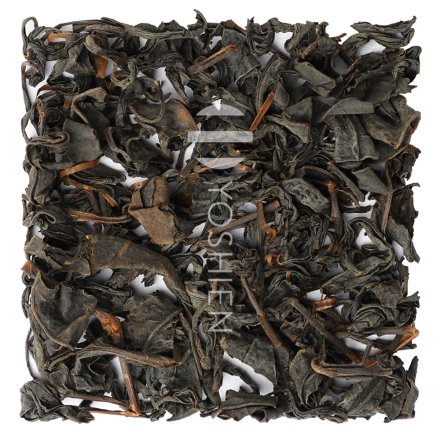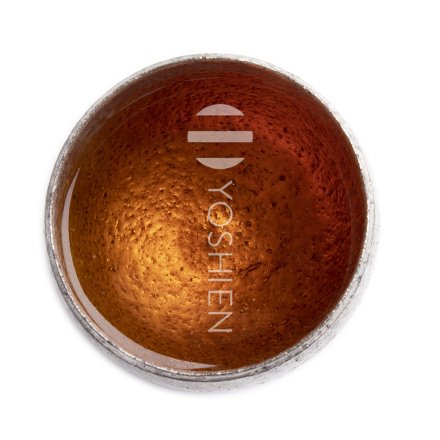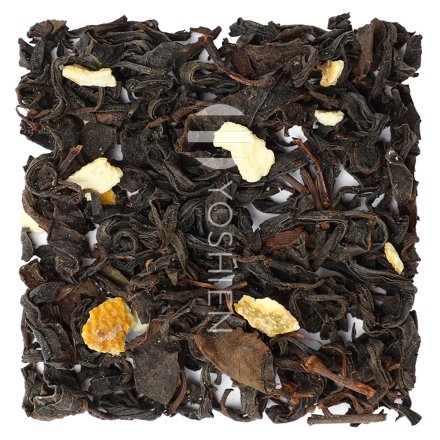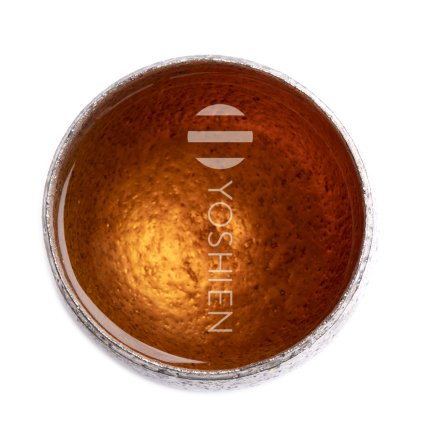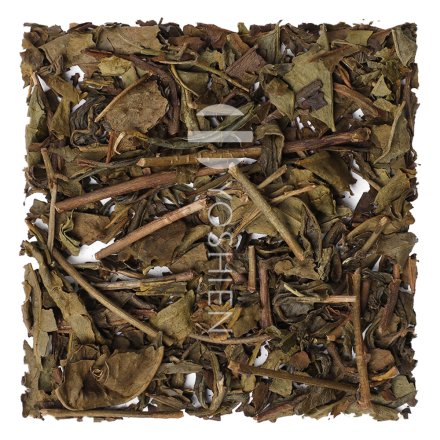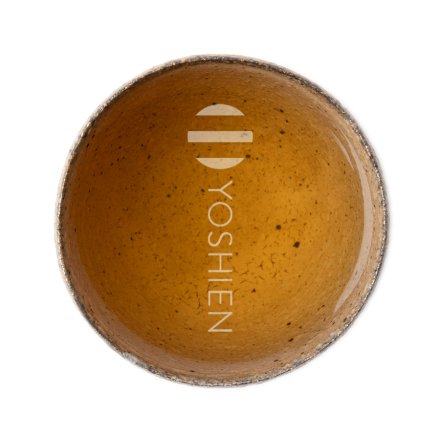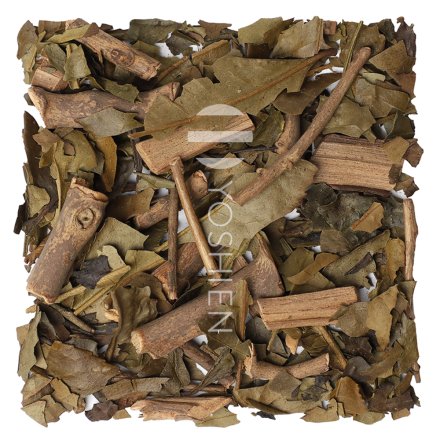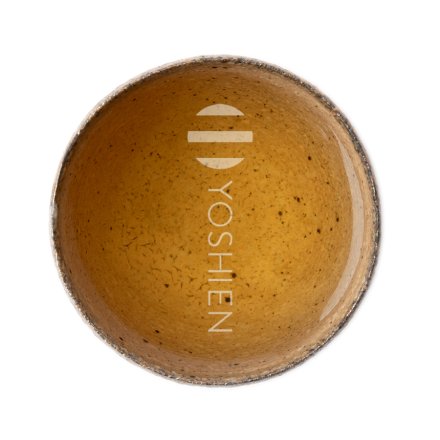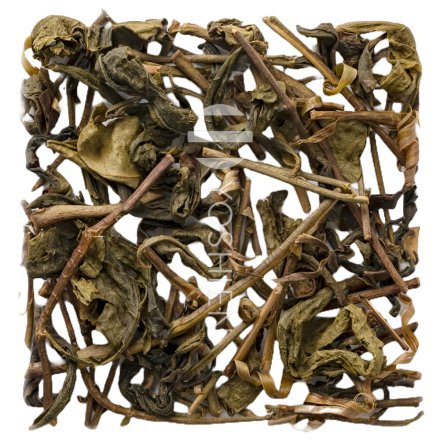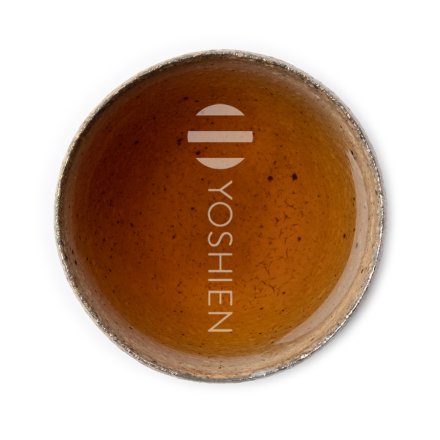MIYAZAKI SABO
WORLD-CLASS KAMAIRICHA, WAKOCHA AND SANNEN BANCHA
| Tea Farm: |
Miyazaki Sabo |
| Terroir: |
Gokase, Miyazaki, Japan |
| Elevation: |
600–750m above sea level |
| Organic Cert.: |
EU certified organic & JAS organic since 2001, pesticide-free cultivation since 1983 |
| Focus: |
Traditionally produced kamairicha, sannen bancha, wakocha and zairai teas |
The Miyazaki Sabo tea farm (宮﨑茶房) is truly a place of superlatives: almost 15 hectares of land encompass the total of about 140 tea fields, about four times the average among independent Japanese tea farmers. The variety of cultivars grown is also exceptionally large, with more than 20 varieties, and has even earned Mr. Miyazaki the nickname of "cultivar king" among tea connoisseurs and friends. Last but not least, Miyazaki Sabo is characterised by its focus on traditional tea specialities from the region, including wakocha black tea, sannen bancha and especially kamairicha. Miyazaki Sabo has received many awards for this, including first places and awards from the Minister of Agriculture at the most important Japanese tea competition, the "Zenkoku Cha Hinpyo Kai" 全日本茶品評会, and in 2002 at the particularly prestigious Tenno Cup of the annual "Agriculture Festival", which is awarded by the Japanese Emperor for outstanding agricultural products. The conversion to organic, pesticide-free cultivation already took place in the early 1980s, which means that the farm can be counted among the pioneers of organic cultivation in Japan – especially when it comes to tea specialities beyond the widespread steamed sencha & gyokuro.
TERROIR
Situated at over 600m above sea level, the tea fields of Miyazaki Sabo are nestled in the landscape of rivers and forested hills between the Aso volcanic massif to the north and the Miyazaki highlands to the south. The village of Gokase is not far from the geographical centre of Kyushu and offers a magical landscape full of rock caves and waterfalls, gorges and ancient Shinto shrines. Directly adjacent is Takachiho, known throughout Japan, which is closely interwoven with the classic Japanese sagas about the kami gods: in a crevice in the rock that is still accessible today, the sun goddess Amaterasu is said to have once hidden here, and it is also here where the gods once descended from the heavenly realms and settled Japan. For Mr. Miyazaki, nature in Gokase is also particularly suitable for the cultivation of tea and plants in general for this reason, because in the forests and mountains of the region, which are bursting with life energy, one could truly believe that one could feel the kami of nature in every stone and every blade of grass. Due to the high altitude, the tea fields have a climate with large temperature differences depending on the time of day and season, and even snow sometimes falls in large quantities in winter despite the southern location – making the region the southernmost skiing area in Japan. For the tea, this stimulating climate means a positive stress that leads to the development of a full aroma and the slow growth of the plants, which enables them to absorb and utilise the nutrients of the soil particularly well.
TEA VARIETIES & PRODUCTION
In Miyazaki Prefecture, and especially in the tea fields of Miyazaki Sabo, there is a much greater variety of cultivars than in other Japanese tea regions, which is particularly related to the tradition of kamairicha. As one of only two large regions for kamairicha in Japan, Gokase, along with Ureshino, is strongly characterised by this tea speciality, in which the tea, unlike sencha, is not steamed but heated in a pan to stop oxidation. Accordingly, many cultivars used in particular for the production of Kamairicha, such as Minekaori or Takachiho, are found with a distinctive flavour of their own and great florality – one of the most important eye-catchers of good tea for Mr. Miyazaki. In fact, Mr. Miyazaki has always had a great love for flowers, which he researched in his agricultural studies and whose diverse aromas he particularly values in his teas. It is therefore not surprising that Miyazaki Sabo, in contrast to the majority of Japanese farmers, does not specialise in sencha and gyokuro, but in Kamairicha, Wakocha and Oolong teas – teas that focus less on a strong umami and more on the floral aroma bouquet. This is further enhanced by the thinness of the leaves due to the altitude, the withering before processing and the heat of the pan, which makes Miyazaki Sabo's teas true aromatic treasures among Japanese teas. Another speciality from Miyazaki is sannen bancha, literally "3-year bancha", which is roasted by hand and of which two variants are produced: a three-year matured sannen bancha and a sannen bancha from tea plants that have been untouched for three years and are cut back together with the branches.
FAMILY & CULTIVATION
Despite the high altitude and the associated tendency for pests to infest the tea plants, the conversion to organic cultivation in the 1980s was not an easy one. As with many other of our organic farmers, the quality and health of the tea plants initially left much to be desired after the conversion. A pesticide-related accident suffered by a family friend and the desire to produce safe products for tea drinkers prompted a radical rethink of the then customary cultivation methods involving large quantities of pesticides and a switch to entirely organic farming. Not only could one not rely on established know-how in tea cultivation, but there was also a lack of consumer support and appreciation for organic products, as organic tea had a reputation for inferior quality. Another economic factor also weighed on the Miyazaki family's tea cultivation, as due to the high altitude, the new tea flourished later than in the lowlands, which meant that green tea fetched a cheaper price compared to these sought-after shincha. Miyazaki Sabo defied these difficulties with bravura by focusing on the region's tradition and countering the increasingly prevalent trend towards sencha production by starting to produce kamairicha, and later wakocha, oolong and sannenbancha, in order to stand out from the crowd. In addition, Mr. Miyazaki made great efforts to make his teas known beyond the borders of the prefecture, for which he presented his teas at many different tea fairs such as the Japan Tea Festival. In addition, Miyazaki Sabo began to create creative and sometimes unusual blends, e.g. with yuzu, ginger, tea flowers or even tulsi basil from the region. In the meantime, Miyazaki Sabo has earned a reputation for excellent teas, which also attracts many travellers who are welcomed with great friendliness at Miyazaki Sabo and in the village of Gokase and who are happy to help with the work in the fields.
SOCIAL ENGAGEMENT
Miyazaki Sabo is also very committed to the local community - whether it is open days for primary school children, cooperation with local farmers and shops such as a pastry shop, or projects to revive tourism to the region - the Miyazaki family is actively helping to maintain and develop the Gokase region as a thriving village community. Volunteering to help in the fields is possible and expressly encouraged, as this not only benefits the guests who can experience and learn about tea cultivation for a while, but also Miyazaki Sabo, as it allows them to expand their contacts and gain new lovers and traders of their teas. Last but not least, it is the great commitment to the preservation of the Kamairi tradition – once widespread especially in Kyushu, but largely forgotten due to the preference for sencha – with which Miyazaki Sabo actively contributes to the lived cultural heritage of the region and also provides a valuable service to the Japanese tea world as such with its special teas by preserving the former diversity and regionality.
KAMAIRICHA
TEAS
WAKOCHA & SANNEN BANCHA
TEAS
OOLONG TEA




